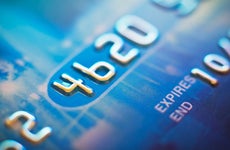Personal Finance
Use Bankrate's advice and tools to help make all of your personal finance decisions.
Latest Articles
-

How to determine financial needs vs wants
Knowing your financial needs and wants is important for your budget.
5 min read Apr 19, 2024 -

What debts can be consolidated? 4 types to consider combining
When used properly, debt consolidation can improve finances and credit.
6 min read Apr 18, 2024 -

Pros and cons of debt consolidation: Is it a good idea?
Weigh the pros and cons to decide if debt consolidation is right for your situation.
6 min read Apr 18, 2024 -

How many credit cards is too many?
The number of cards that’s right for you depends on how many you can easily manage.
11 min read Apr 18, 2024 -

What credit score do you start with?
Whether closing your only credit card will impact your credit score depends on some other factors.
5 min read Apr 18, 2024 -

How to consolidate debt without hurting your credit
Learn how to minimize negative changes to your credit score when consolidating debt.
5 min read Apr 18, 2024 -

What is debt forgiveness?
Debt forgiveness is helpful, but it’s not a Get Out of Jail Free card. Here are some pros and cons to consider.
6 min read Apr 18, 2024 -

Current credit card interest rates
View current credit card rates based on Bankrate.com’s weekly national survey of large banks and thrifts.
1 min read Apr 17, 2024 -

What is my credit score if I have no credit history?
Read on to learn what having no credit history means in practical terms and what steps you can take to build credit.
5 min read Apr 17, 2024 -

Breaking the generational cycle of debt
Generational debt can impact your financial future. Here’s how to break the cycle.
7 min read Apr 15, 2024